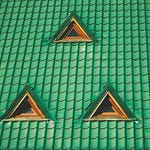
There is a background noise to David. It’s hard to put our finger on, but we can hear it all the same. Here is Samuel, the prophet of the Lord, showing up to anoint one of Jesse’s sons to replace King Saul, and Jesse cannot be bothered to bring David in from tending sheep (16:11). Why?
We can only conjecture, but we may do so with biblical pieces that fit. The book of Judges ends with the horrific story of the slaughtered concubine (Judges 19-21), all of it under the heading, “In those days, when there was no king in Israel” (Judges 19:1). The concubine is owned by a priest, itself a grave sin. She is unfaithful to him and runs away to her father’s home - in Bethlehem (19:2).
The most likely reason she goes to her father’s house in Bethlehem is to have her child from the affair. The priest then finds her and brings her back to himself. They travel on, refusing to lodge with foreigners (19:12), instead staying in Gibeah.
However, God’s people have declined into the same heart and sins as that of Sodom and Gomorrah. Echoing the night the men of Sodom surrounded Lot’s house to rape his guests (Genesis 19), the men of Gibeah take the concubine out of their house and abuse her all night, to her death (19:22-28).
The story ends in horror upon horror: the priest dismembers her body, sending her parts to the various tribes, that the people would take heed. Civil war ensues (Judges 20-21). In order to be led out of their madness, the people need a king. They would choose Saul, who looked the part, but did not share God’s own heart.
So God Himself would choose another: the plus-one eighth “son” after a perfect seven, the shepherd-boy who was himself the black sheep of black sheep, the illegitimate son of a whore, adopted by Jesse as his own but shamefully kept out of sight in the fields. God chose him to be His anointed.
Not by might nor power, but by His Spirit, the LORD of hosts works (1 Samuel 16:13; Zechariah 4:6). Let the church remember afresh: God does not look on appearances and pedigrees, but on the heart (1 Samuel 16:7).










